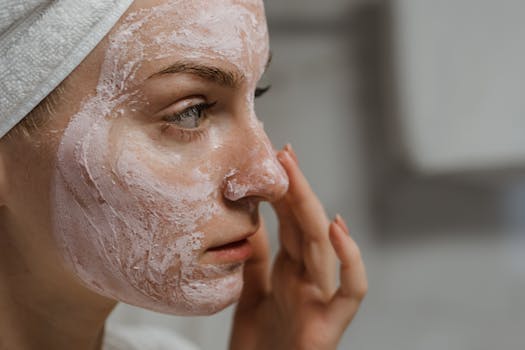Understanding Exfoliation: Chemical vs. Mechanical
Exfoliation is a crucial step in any skincare routine, as it helps to remove dead skin cells, unclog pores, and promote cell turnover. However, not all exfoliation methods are created equal. The two primary types of exfoliation are chemical and mechanical, each with its own benefits and drawbacks. Understanding the differences between these methods can help you choose the right one for your skin type.
What is Mechanical Exfoliation?
Mechanical exfoliation involves physically scrubbing the skin to remove dead skin cells. This can be done using various tools and products, such as:
- Exfoliating scrubs with granular ingredients (e.g., sugar, salt, or ground nuts)
- Facial brushes or sponges
- Microdermabrasion devices
While mechanical exfoliation can provide immediate results, it may not be suitable for everyone. For instance, individuals with sensitive skin or conditions like rosacea may find that mechanical exfoliation irritates their skin.
What is Chemical Exfoliation?
Chemical exfoliation, on the other hand, uses acids or enzymes to dissolve dead skin cells and promote cell turnover. Common types of chemical exfoliants include:
- Alpha Hydroxy Acids (AHAs) – such as glycolic and lactic acid, which are water-soluble and primarily work on the skin’s surface.
- Beta Hydroxy Acids (BHAs) – like salicylic acid, which is oil-soluble and can penetrate deeper into the pores, making it ideal for oily or acne-prone skin.
- Enzymatic exfoliants – derived from fruits (e.g., papaya or pineapple) that gently break down dead skin cells.
Chemical exfoliants can provide more uniform results and are often less abrasive than mechanical methods, making them suitable for a wider range of skin types.
Choosing the Right Method for Your Skin Type
When deciding between chemical and mechanical exfoliation, consider your skin type and specific concerns:
1. Oily or Acne-Prone Skin
If you have oily or acne-prone skin, chemical exfoliants, particularly BHAs like salicylic acid, are often more effective. They can penetrate the pores to help clear out excess oil and prevent breakouts.
2. Dry or Sensitive Skin
For those with dry or sensitive skin, gentle mechanical exfoliation or mild AHAs can be beneficial. Look for products that contain soothing ingredients to minimize irritation.
3. Combination Skin
Combination skin may benefit from a mix of both methods. You can use mechanical exfoliation on areas that are more oily and chemical exfoliants on drier patches.
4. Mature Skin
Mature skin often requires more gentle care. AHAs can help improve skin texture and reduce the appearance of fine lines without the harshness of scrubs.
Case Studies and Statistics
According to a study published in the Journal of Cosmetic Dermatology, 70% of participants reported improved skin texture and tone after incorporating chemical exfoliants into their skincare routine. Additionally, a survey by the American Academy of Dermatology found that 60% of dermatologists recommend chemical exfoliation over mechanical methods for patients with acne-prone skin.
Furthermore, a case study involving patients with rosacea showed that those who switched from mechanical to chemical exfoliation experienced a significant reduction in flare-ups and irritation.
Conclusion: Finding Your Perfect Exfoliation Method
In summary, both chemical and mechanical exfoliation have their unique advantages and can be effective in achieving healthy, glowing skin. The key is to understand your skin type and specific needs:
- Oily or acne-prone skin may benefit from BHAs.
- Dry or sensitive skin should opt for gentle mechanical or mild AHA exfoliants.
- Combination skin can use a combination of both methods.
- Mature skin often requires the gentleness of AHAs.
By choosing the right exfoliation method, you can enhance your skincare routine and achieve the radiant skin you desire. Always remember to patch test new products and consult with a dermatologist if you have any concerns about your skin’s health.
